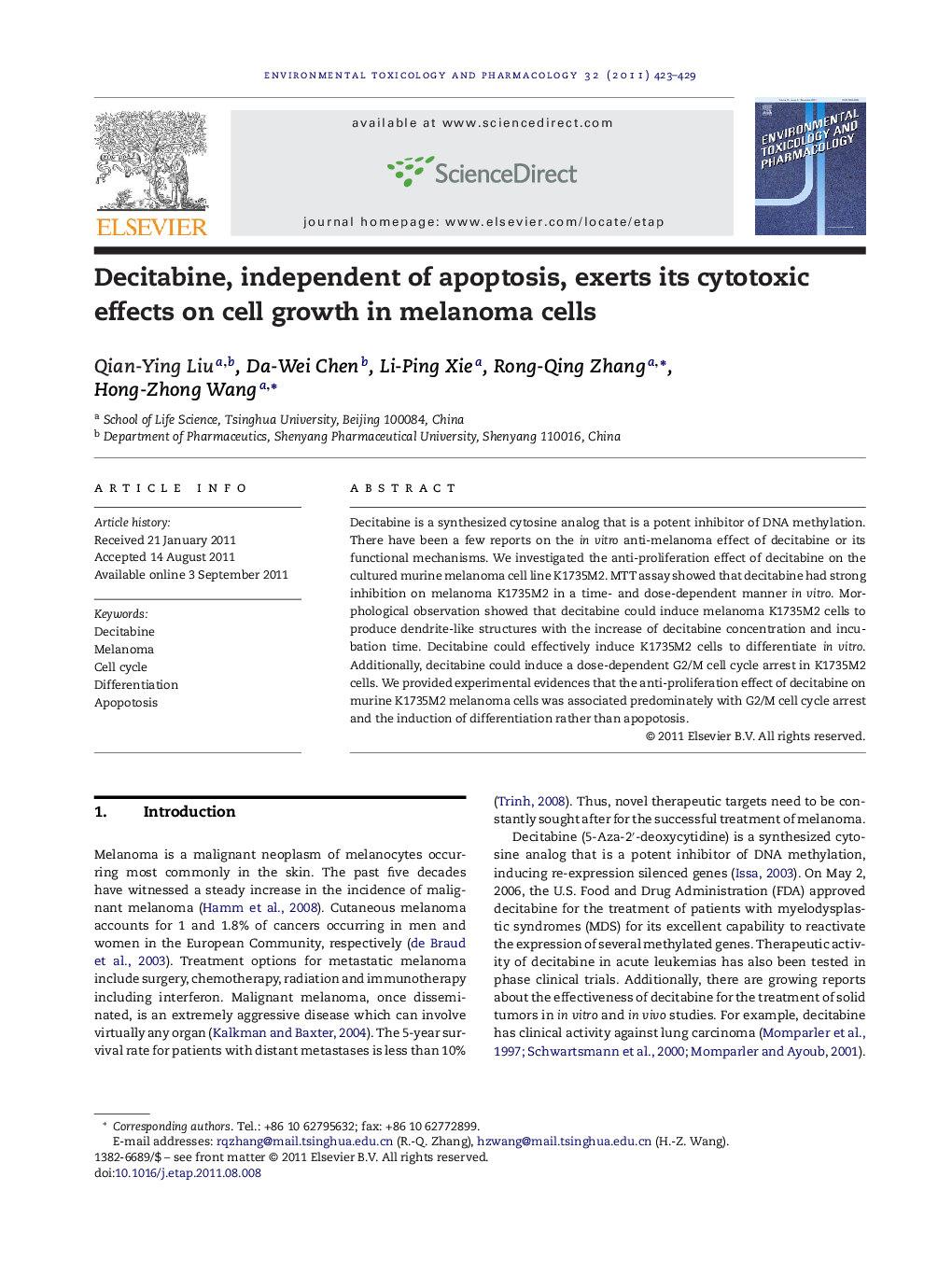| Article ID | Journal | Published Year | Pages | File Type |
|---|---|---|---|---|
| 2583643 | Environmental Toxicology and Pharmacology | 2011 | 7 Pages |
Decitabine is a synthesized cytosine analog that is a potent inhibitor of DNA methylation. There have been a few reports on the in vitro anti-melanoma effect of decitabine or its functional mechanisms. We investigated the anti-proliferation effect of decitabine on the cultured murine melanoma cell line K1735M2. MTT assay showed that decitabine had strong inhibition on melanoma K1735M2 in a time- and dose-dependent manner in vitro. Morphological observation showed that decitabine could induce melanoma K1735M2 cells to produce dendrite-like structures with the increase of decitabine concentration and incubation time. Decitabine could effectively induce K1735M2 cells to differentiate in vitro. Additionally, decitabine could induce a dose-dependent G2/M cell cycle arrest in K1735M2 cells. We provided experimental evidences that the anti-proliferation effect of decitabine on murine K1735M2 melanoma cells was associated predominately with G2/M cell cycle arrest and the induction of differentiation rather than apopotosis.
► Decitabine could inhibit the proliferation of melanoma K1735M2 cells in vitro. ► Decitabine could effectively induce K1735M2 cells to differentiate in vitro. ► Decitabine could induce a dose-dependent G2/M cell cycle arrest in K1735M2 cells. ► Decitabine exerts its cytotoxic effects on cell growth in K1735M2 cells independent of apoptosis.
